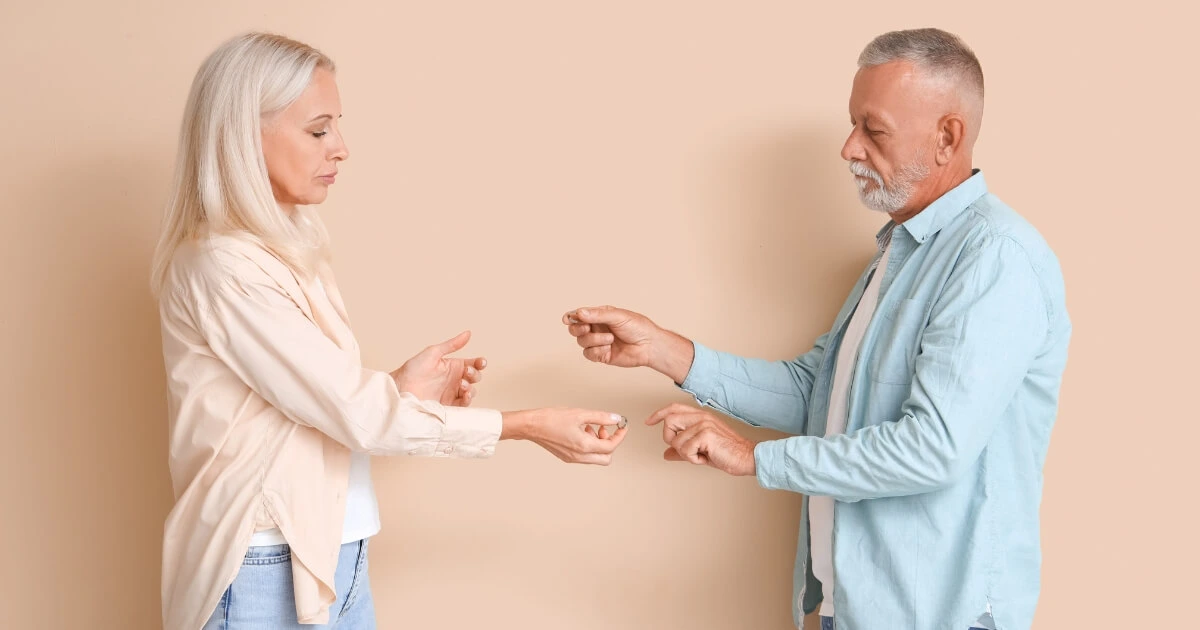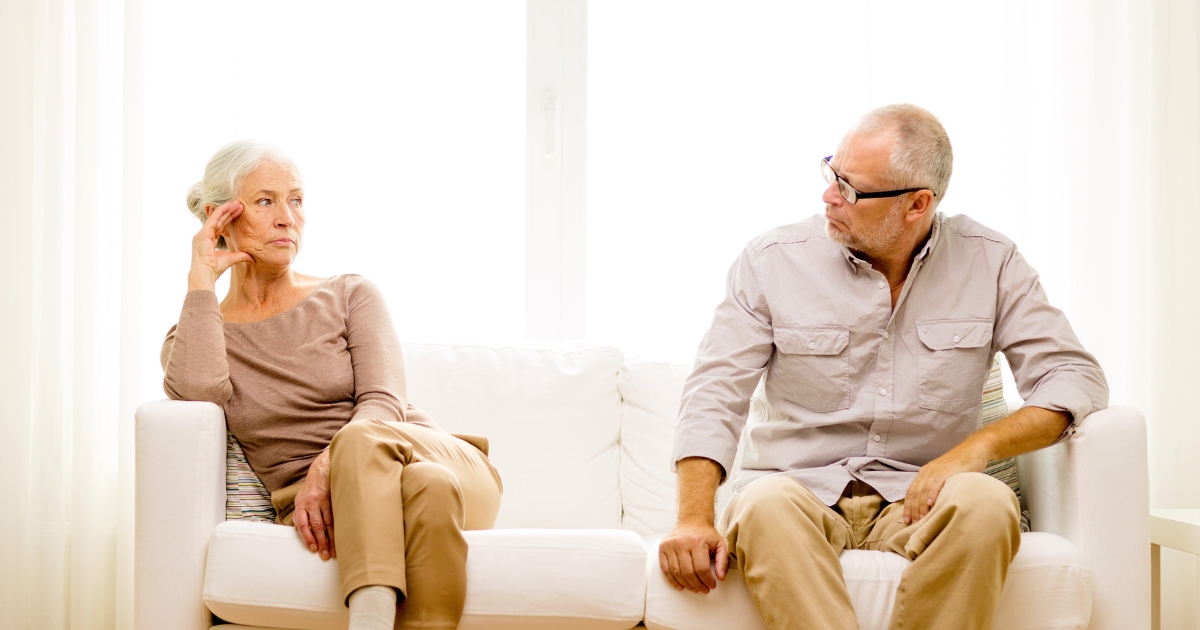
Does The Pain of Divorce Ever Go Away?
Divorce is one of life’s toughest challenges.
It can leave you feeling lost, overwhelmed, and wondering if the pain will ever end. If you’re over 50, the emotions tied to a divorce can feel even heavier, as you might be facing this change at a stage in life where you thought stability was a given.
But here’s the truth you need to hear right now:
Yes, the pain of divorce does go away with time, effort, and the right steps toward healing. While it might seem impossible in the moment, coping with divorce pain is not just achievable but something you absolutely deserve. Healing after divorce doesn’t happen overnight, but each small step forward gets you closer to moving on after divorce and finding peace again.
This blog is here for you. If you’ve been wondering how to cope with the pain and what recovery looks like, we’ll walk through it together.
From understanding the stages of healing to practical advice, this is a guide to help you see that life beyond divorce is not only possible but filled with new chances for joy.
Why Is Divorce Painful?
Divorce isn’t just the end of a marriage; it’s often tied to the loss of dreams, routines, and even your sense of identity. You might feel grief for what was or fears about your future. That’s normal. Understanding why it’s painful can help you learn how to confront those feelings without letting them consume you.
Here are some common reasons that add to the pain of divorce:
- Loss of Stability: A long-term marriage may have provided structure, and now, you’re adjusting to a new normal.
- Loneliness: You may miss companionship or feel isolated from social connections built during your marriage.
- Uncertainty About the Future: Starting over can feel daunting, especially when you’ve spent decades planning a life together.
Knowing what causes this pain gives you the tools to work through it. You are not alone, and millions of others have taken steps toward healing after divorce.
What Does Healing After Divorce Look Like?
Healing after divorce doesn’t follow a straight line. Think of it like climbing a mountain. Some days, you’ll feel progress; others may feel like setbacks. That’s okay. With patience and self-care, you will find balance again.
Here are some stages of healing that many people experience:
- Shock and Denial: You may feel numb or unable to accept the end of your marriage.
- Anger and Sadness: Feelings of betrayal or grief are natural as you process what’s happened.
- Acceptance: Over time, you begin to make peace with the reality of your new path.
Even if these stages feel endless now, they aren’t permanent. You deserve a chance at moving on after divorce and turning emotional wounds into strength.

Practical Tips for Coping With Divorce Pain
You don’t have to face this alone. These actionable steps can help you cope and make the healing process less overwhelming:
Focus on Self-Care
Taking care of yourself is not selfish; it’s something you need to do, especially during tough times. Showing yourself kindness can make a big difference. Make it a point to do things that help your mind and body feel better. Try sticking to a sleep routine that works for you, even if it means adjusting your bedtime habits.
Adding small amounts of exercise, like taking a short walk, can help relieve stress, too. Activities like mindfulness or writing down your thoughts in a journal can also give you a clearer way to manage your feelings.
Build a Support System
Having people around you who care makes a big difference. Family, trusted friends, or even members of a support group can help lighten your emotional load. Sharing your feelings with others can ease the process, so don’t hesitate to reach out. Divorce recovery groups, whether online or in-person, can connect you with others who understand what you’re going through.
Talking with a therapist can provide useful advice tailored to your situation. Re-engaging with hobbies or joining clubs can also fill your time in ways that are fun and meaningful while helping you meet new people.
Set Gradual Goals
Moving forward after divorce starts with small steps. Setting simple, manageable goals is an effective way to avoid feeling overwhelmed. For example, decluttering a part of your home can give you a sense of control and create a fresh space for yourself.
Making lists of things you’d like to try, like a new activity or attending a local event, can add excitement to your life. Just be careful not to overload yourself with too many changes at once. Taking it slow and steady can lead to progress that feels sustainable.
Rediscover Yourself
After being in a relationship for so long, it’s common to feel unsure about your identity. This can be a time to reconnect with who you are as an individual. Creating a vision board can help you see what you want your future to look like. Writing in a journal is another good way to explore topics like what makes you happiest or goals you’ve always dreamed about but never pursued.
Reflecting on your personal values can guide the choices you make from here. Building your confidence starts with remembering how strong you truly are. A divorce doesn’t define you, and this is your chance to rediscover your own worth.
Moving On After Divorce Over 50
Starting again over 50 might seem harder, but it also comes with its advantages. You’ve gained life experience and wisdom that many younger people don’t have yet. That same experience helps you recognize what matters most and what doesn’t.
Here are reasons why rebuilding after 50 can have its advantages:
- You Know Yourself Better Now: This is your chance to design a fulfilling life that matches who you are today.
- More Freedom for Personal Choices: With children grown or careers established, you may have fewer responsibilities, allowing greater focus on your happiness.
- Stronger Relationship Clarity: If dating eventually feels right, you’re better able to identify healthy connections versus unhealthy patterns.
Will Dating Again Feel Possible?
It’s natural to wonder if love can be part of your life after divorce. The answer? Absolutely. Many people over 50 discover meaningful connections later in life. What matters most is giving yourself time to heal first. You don’t have to rush into anything. Take small steps when ready.
- Surround yourself with friends who uplift and encourage your confidence.
- Try light-hearted ways to meet people, from book clubs to travel groups.
- Remember, dating is about connections, not perfection.
Your happiness isn’t tied to anyone else, but sharing your life with someone can still bring you joy at any age.
Your New Beginning
Coping with divorce pain is a process, and it’s okay to feel unsure at times. By focusing on healing after divorce and moving on after divorce, you open the door to brighter possibilities, even if they feel far away today.
And if you’re considering dating over 50, remember that it’s never too late to find connection and companionship. For more tips and ideas tailored to this stage of life, sign up for our bulletin. You deserve a fresh start filled with love and laughter—even after tough times. Who knows? The next chapter of your story could be the best one yet.











